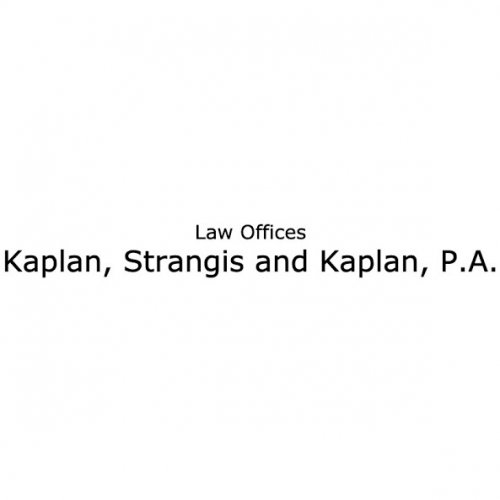Best Nonprofit & Charitable Organizations Lawyers in Minneapolis
Share your needs with us, get contacted by law firms.
Free. Takes 2 min.
List of the best lawyers in Minneapolis, United States
About Nonprofit & Charitable Organizations Law in Minneapolis, United States
Nonprofit and charitable organizations play a vital role in enhancing the community fabric of Minneapolis, providing essential services, art, education, and environmental stewardship. The law surrounding these entities is designed to facilitate their operations while ensuring legal compliance. Nonprofit law in the U.S. generally governs the establishment, operation, and dissolution of nonprofit entities, encompassing federal regulations, as well as state and local laws specific to the Minneapolis area. This legal area covers everything from tax exemptions to compliance with charitable solicitation rules and labor laws.
Why You May Need a Lawyer
Operating a nonprofit or charitable organization involves navigating a complicated landscape of statutes and regulations. Common situations where legal assistance may be essential include establishing and incorporating a nonprofit, obtaining and maintaining tax-exempt status, compliance with regulatory requirements, drafting bylaws and policies, handling employment issues, and managing contracts and leases. Legal advice can help ensure your nonprofit operates effectively, ethically, and in full compliance with applicable laws, minimizing the risk of legal issues.
Local Laws Overview
Minneapolis, like many other cities, has specific rules and regulations affecting nonprofit operations. Key aspects include requirements for incorporation, preparation and submission of Articles of Incorporation to the Minnesota Secretary of State, local tax obligations, zoning laws affecting nonprofit property use, and regulations related to charitable solicitation and fundraising activities. Minnesota law also requires nonprofits to register with the Minnesota Attorney General's office if they engage in charitable solicitation. Understanding these and other local requirements is critical for any nonprofit professional in Minneapolis.
Frequently Asked Questions
What are the steps to start a nonprofit organization in Minneapolis?
To start a nonprofit, you'll need to define your mission, draft a business plan, incorporate your nonprofit by filing Articles of Incorporation with the Minnesota Secretary of State, apply for an EIN from the IRS, register for federal and state tax exemptions, and create bylaws.
How do I apply for tax-exempt status for my nonprofit?
You must file IRS Form 1023 to apply for 501(c)(3) status, demonstrating that your organization is organized and operated exclusively for exempt purposes. You may also need to file additional forms with the Minnesota Department of Revenue.
What legal obligations do board members have?
Board members have fiduciary responsibilities, including the duty of care, loyalty, and obedience. They must act in the organization's best interest, monitor its operations, and ensure compliance with laws.
When is a nonprofit required to register with the Minnesota Attorney General's Office?
Nonprofits engaging in charitable solicitation must register unless they meet specific exemptions. This includes filing an initial registration and annual reports.
How often must a nonprofit file reporting forms?
Nonprofits must file annual reports with the Minnesota Secretary of State and may also need to submit annual charitable registration renewals with the Attorney General. Federally, nonprofits usually file Form 990 with the IRS annually.
Can a nonprofit organization engage in political activities?
Nonprofits can engage in some political activity but must adhere to IRS restrictions. 501(c)(3) organizations cannot support or oppose political candidates but can engage in limited lobbying.
What is the difference between a nonprofit and a tax-exempt organization?
Not all nonprofits are tax-exempt. Nonprofit status is determined at the state level, while tax exemption is a federal IRS designation. A nonprofit must apply for and receive IRS 501(c)(3) status to be tax-exempt.
How can a nonprofit lose its tax-exempt status?
A nonprofit can lose its status by failing to file annual returns, engaging in prohibited activities like political campaigning, or excessively benefiting individuals related to the organization.
What types of permits or licenses might a nonprofit need?
This depends on activities and location. Possible permits include special event licenses, raffle licenses, and solicitation permits. Zoning laws might also require specific permits.
Is ongoing legal counsel necessary for nonprofits?
While not mandatory, ongoing legal counsel can be invaluable to help navigate complicated compliance issues, draft contracts, and provide guidance on ever-changing laws.
Additional Resources
Several resources can assist nonprofits in Minneapolis, including:
- Minnesota Council of Nonprofits - Offers guidance and resources for nonprofit management.
- Office of the Minnesota Attorney General - Provides information on charitable organization registration and regulatory requirements.
- Internal Revenue Service (IRS) - Resources for applying for and maintaining tax-exempt status.
- Minnesota Secretary of State - Manages incorporation details and annual reporting for nonprofits.
Next Steps
If you need legal assistance for your nonprofit or charitable organization, consider taking the following steps:
- Identify your needs: Determine in which areas you require legal assistance, such as incorporation, tax exemption, or compliance.
- Research attorneys: Look for lawyers specializing in nonprofit law in Minneapolis. The Minnesota State Bar Association's Lawyer Referral Service can be a helpful resource.
- Schedule consultations: Meet with potential attorneys to discuss your needs and their experience with nonprofit law in Minneapolis.
- Evaluate and hire: Choose an attorney who aligns with your organization's needs and values.
With the right legal guidance, you can ensure your nonprofit's successful and compliant operation within Minneapolis's regulatory framework.
Lawzana helps you find the best lawyers and law firms in Minneapolis through a curated and pre-screened list of qualified legal professionals. Our platform offers rankings and detailed profiles of attorneys and law firms, allowing you to compare based on practice areas, including Nonprofit & Charitable Organizations, experience, and client feedback.
Each profile includes a description of the firm's areas of practice, client reviews, team members and partners, year of establishment, spoken languages, office locations, contact information, social media presence, and any published articles or resources. Most firms on our platform speak English and are experienced in both local and international legal matters.
Get a quote from top-rated law firms in Minneapolis, United States — quickly, securely, and without unnecessary hassle.
Disclaimer:
The information provided on this page is for general informational purposes only and does not constitute legal advice. While we strive to ensure the accuracy and relevance of the content, legal information may change over time, and interpretations of the law can vary. You should always consult with a qualified legal professional for advice specific to your situation.
We disclaim all liability for actions taken or not taken based on the content of this page. If you believe any information is incorrect or outdated, please contact us, and we will review and update it where appropriate.














